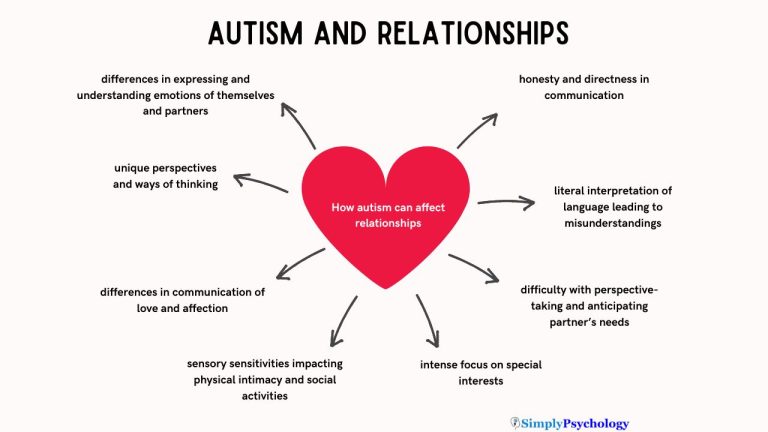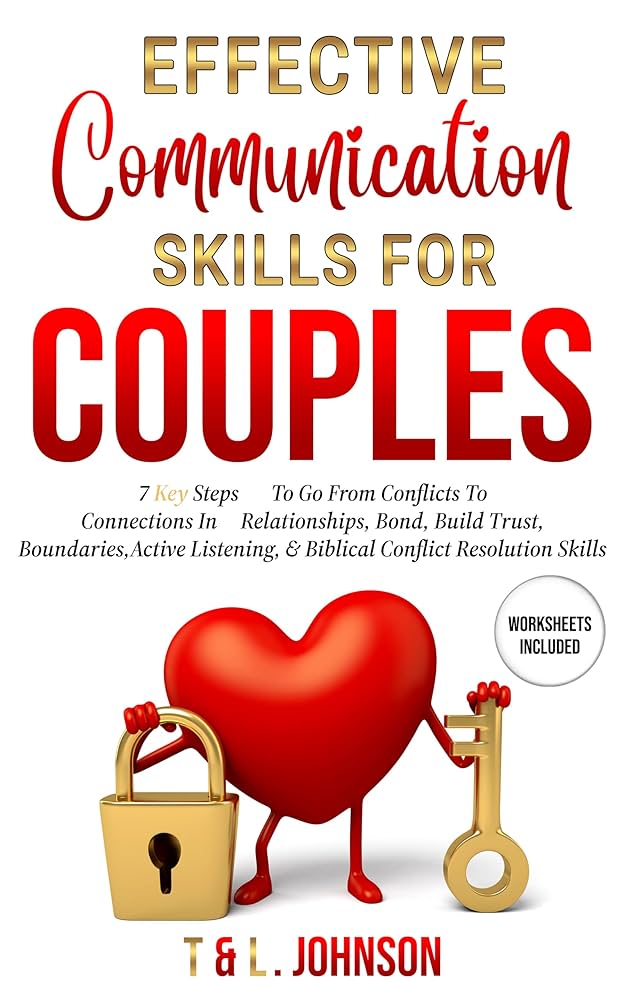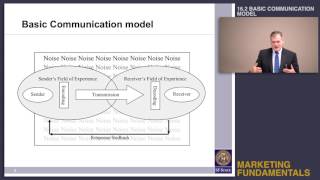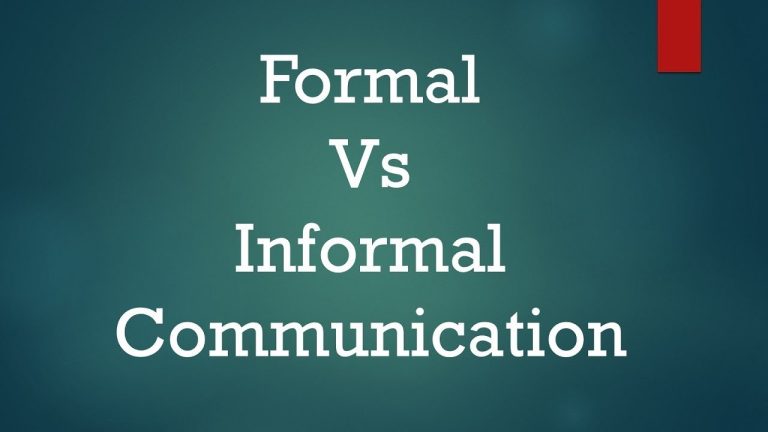How to Have an Effective Conversation?
To have an effective conversation, listen actively and express yourself clearly and concisely. Effective communication is essential for building relationships and resolving conflicts.
We will discuss the key principles of effective conversation and provide practical tips to help you become a better communicator. Whether you’re engaging in a personal or professional conversation, implementing these strategies will enhance your ability to connect with others and convey your message effectively.
By being present, listening attentively, and communicating clearly, you can foster meaningful conversations and achieve successful outcomes. So, let’s dive in and explore the art of having an effective conversation.
Essential Skills For Effective Conversations
Developing essential skills for effective conversations is crucial in fostering meaningful connections and understanding. By actively listening, empathizing, asking open-ended questions, and being mindful of body language, individuals can enhance their ability to engage in successful and impactful conversations.
Having effective conversations is crucial for building strong relationships, resolving conflicts, and achieving personal and professional growth. By developing and honing certain skills, you can significantly improve your ability to engage in meaningful and productive conversations. Here are three essential skills that can help you have more effective conversations:
Active Listening:
- Show genuine interest in the speaker by maintaining eye contact and using attentive body language.
- Avoid interrupting and truly focus on what the speaker is saying.
- Practice reflective listening by paraphrasing and summarizing the speaker’s words to confirm your understanding.
- Ask relevant and open-ended questions to encourage further dialogue.
- Demonstrate empathy and understanding by acknowledging the speaker’s emotions and perspective.
Openness And Empathy:
- Approach conversations with an open mind and a willingness to consider different viewpoints.
- Cultivate empathy by putting yourself in the other person’s shoes and trying to understand their feelings and experiences.
- Avoid being judgmental or dismissive of others’ opinions.
- Be receptive to feedback and constructive criticism, seeing it as an opportunity for growth.
- Create a safe environment where people feel comfortable expressing their thoughts and emotions.
Non-Verbal Communication:
- Be aware of your own non-verbal cues, such as facial expressions, gestures, and posture.
- Use appropriate body language to convey interest, attentiveness, and openness.
- Pay attention to the non-verbal cues of the speaker, such as their tone of voice and body language, to gain a deeper understanding of their message.
- Maintain good eye contact to establish a connection and show respect.
- Use non-verbal cues to provide affirmation and encouragement, such as nodding or smiling.
Developing and practicing these essential skills can transform the way you communicate and enhance the quality of your conversations. By actively listening, being open and empathetic, and paying attention to non-verbal cues, you can foster meaningful connections and navigate conversations with confidence.
So, why not start incorporating these skills into your daily interactions and see the positive impact they can make?

Credit: online.hbs.edu
Preparing For Effective Conversations
Learn the essential steps for having effective conversations with our comprehensive guide. Discover strategies for active listening, maintaining engagement, and conveying your message clearly. Improve your communication skills and foster stronger connections with others.
Setting Clear Goals And Objectives:
- Define the purpose of the conversation: Before engaging in any conversation, it is crucial to set clear goals and objectives. Doing so will help you stay focused and ensure that you achieve what you intend through the discussion. Consider the following points when setting your goals and objectives:
- Identify what you hope to accomplish: Understand the desired outcome of the conversation. Whether it is reaching a mutual agreement, gaining insight, or resolving a conflict, clarity on your expectations is essential.
- Determine the main points you want to convey: Think about the key messages you want to communicate during the conversation. This will help guide your discussions and keep you on track.
- Consider the desired emotional tone: Along with your goals and objectives, think about the emotional tone you hope to establish during the conversation. Whether it is creating a calm and understanding environment or promoting a sense of urgency, determining the desired emotional tone can help shape your approach.
Understanding The Context And Audience:
- Analyze the context of the conversation: Consider the larger context surrounding the conversation. This includes the current situation, any previous interactions, and any external factors that may influence the discussion. Understanding the context will allow you to tailor your approach accordingly.
- Identify the audience and their needs: Determine who will be participating in the conversation and take the time to understand their perspectives and needs. By doing so, you can ensure that your communication is relevant and impactful.
- Consider cultural and personal differences: Be mindful of cultural and personal differences that may exist within the conversation. This includes being conscious of language, tone, and non-verbal cues that may vary among individuals. Respect and adapt to these differences to foster effective communication.
Research And Preparation:
- Gather relevant information: Before engaging in a conversation, conduct thorough research and gather all relevant information. This may include facts, data, or background knowledge that will support your points and enhance the overall discussion.
- Anticipate potential questions or objections: Put yourself in the shoes of the other participants and anticipate any questions or objections they may raise. By being prepared with well-thought-out responses, you can address concerns confidently and effectively.
- Practice active listening: Effective communication involves active listening. Prioritize understanding the perspectives and ideas of others during the conversation. This will demonstrate respect and create a more collaborative environment.
- Reflect on previous conversations: If applicable, reflect on previous conversations with the same individuals or within a similar context. Identify any patterns or lessons learned that can help inform your approach and improve future conversations.
Remember, preparing for effective conversations is a crucial step in ensuring successful communication. Setting clear goals and objectives, understanding the context and audience, and conducting thorough research and preparation will enhance your ability to navigate conversations with confidence and achieve the desired outcomes.
Initiating And Establishing Effective Conversations
Learn the art of initiating and establishing effective conversations with our expert tips. Discover techniques for active listening, asking open-ended questions, and maintaining good eye contact to have engaging and productive conversations.
Starting With A Positive And Open Mindset
- Approach the conversation with a positive mindset, as it sets the tone for an effective dialogue.
- Open your mind to different perspectives and be willing to listen and learn.
- Embrace curiosity and genuine interest in the other person’s thoughts and ideas.
- Avoid judgment and assumptions, creating a safe space for open communication.
Building Rapport And Trust
- Establishing rapport is crucial in ensuring effective conversations:
- Find common ground or shared experiences to create a connection.
- Use active listening skills to show genuine interest and attentiveness.
- Display empathy and understanding towards the other person’s emotions and experiences.
- Building trust is essential for fostering open and honest conversations:
- Be authentic and transparent in your communication.
- Maintain confidentiality when necessary.
- Keep your promises and follow through on commitments.
Setting The Tone And Ground Rules
- Setting the tone of the conversation helps create a productive and respectful atmosphere:
- Use a friendly and respectful tone while speaking.
- Be mindful of body language and non-verbal cues.
- Encourage open dialogue by avoiding interrupting or dominating the conversation.
- Establishing ground rules can ensure a smooth conversation process:
- Define the purpose and goals of the conversation at the beginning.
- Encourage equal participation and give everyone an opportunity to speak.
- Set boundaries and guidelines for respectful communication, such as avoiding personal attacks or offensive language.
By approaching conversations with positivity, building rapport and trust, and setting a tone of respect and clear guidelines, you can initiate and establish effective conversations that foster understanding, growth, and collaboration.
Structuring Effective Conversations
Learn how to have effective conversations with these 6 essential guidelines. From avoiding overused phrases to keeping sentences concise and engaging, this resource will help you structure conversations that leave a lasting impact.
Having effective conversations is crucial in both personal and professional settings. By structuring your conversations properly, you can ensure that the purpose is defined, topics are organized, and time is well managed. In this section, we will outline the key steps to structuring effective conversations.
Defining The Purpose And Agenda:
Before starting any conversation, it’s important to clearly define the purpose and agenda. This helps ensure that everyone involved understands what the conversation aims to achieve. Here’s how you can do it:
- Begin by stating the main purpose of the conversation in a clear and concise manner.
- Identify the desired outcomes or goals you wish to achieve.
- Determine the specific topics or issues that need to be addressed.
- Set a realistic time frame for the conversation.
Organizing And Prioritizing Topics:
To keep the conversation focused and productive, it’s essential to organize and prioritize the topics or issues to be discussed. Here are a few tips on how to do it effectively:
- Start by brainstorming and listing all the topics that need to be covered.
- Evaluate the importance and relevance of each topic.
- Prioritize the topics based on their urgency or significance.
- Group related topics together to ensure a smooth flow of the conversation.
- Prepare any necessary supporting materials or documentation in advance.
Managing Time And Flow:
Managing time effectively during a conversation ensures that all the necessary points are addressed without deviating or rushing through the discussion. Here are some strategies to help you manage time and flow:
- Set a specific time limit for the conversation and stick to it.
- Allocate a defined amount of time for each topic or agenda item.
- Use verbal cues or signals to transition smoothly between different topics.
- Encourage active participation from all participants while keeping the conversation on track.
- If necessary, assign a facilitator to ensure time management and flow.
Remember, structuring effective conversations is paramount in achieving positive outcomes and meaningful interactions. By defining the purpose and agenda, organizing and prioritizing topics, and managing time and flow, you can elevate the quality of your conversations and foster better communication with others.
Effective Communication Techniques
Engage in effective and meaningful conversations by mastering key communication techniques. Communicate clearly, actively listen, maintain eye contact, and avoid interruptions to ensure impactful and successful conversations.
Having effective conversations is essential for building strong relationships, resolving conflicts, and achieving mutual understanding. In order to communicate effectively, it is important to employ various techniques that promote open and honest dialogue. In this section, we will explore three key techniques to enhance your communication skills: asking open-ended questions, paraphrasing and summarizing, and using non-defensive communication.
Asking Open-Ended Questions
Asking open-ended questions encourages the other person to provide thoughtful and detailed responses, thus fostering meaningful conversations. Here are some tips for using this technique effectively:
- Begin questions with words like “what,” “how,” or “why” to prompt deeper reflection.
- Avoid yes-or-no questions, as they limit conversation and can be closed-ended.
- Actively listen to the responses and ask follow-up questions to delve deeper into the topic.
- Remember to maintain a curious and non-judgmental attitude when asking open-ended questions.
Paraphrasing And Summarizing
Paraphrasing and summarizing are powerful tools that demonstrate active listening and show that you understand the speaker’s perspective. By rephrasing what the other person has said, you can validate their feelings and help clarify any misunderstandings. Here are some key points to remember:
- Paraphrasing involves restating the speaker’s words in your own words to ensure accurate understanding.
- Summarizing entails providing a concise overview of what has been discussed, highlighting the main points.
- Use phrases such as “If I understand correctly, you are saying…” or ” you believe that…” to signal that you are paraphrasing or summarizing.
- Check for confirmation from the speaker to ensure you have accurately captured their thoughts.
Using Non-Defensive Communication
Engaging in non-defensive communication is crucial for fostering a safe and respectful conversation. It involves expressing oneself assertively, while also being open to the perspectives of others. Here’s how you can practice non-defensive communication:
- Choose your words carefully and speak in a calm and composed manner.
- Focus on the issue or behavior rather than attacking the individual.
- Avoid becoming defensive or retaliating when faced with criticism or differing opinions.
- Validate the other person’s feelings and viewpoints, even if you don’t agree with them.
Implementing these effective communication techniques will help you navigate conversations more skillfully, leading to better understanding and stronger connections with others. So, ask open-ended questions, paraphrase and summarize to show you are actively listening, and practice non-defensive communication to foster respectful dialogue.
Handling Difficult Situations In Conversations
Handling difficult situations in conversations can be challenging, but there are strategies you can use to ensure effective communication. By actively listening, empathizing with others, and maintaining a calm demeanor, you can navigate tough conversations with confidence and achieve positive outcomes.
Dealing With Conflicts And Disagreements
In the course of conversations, conflicts and disagreements are bound to arise. Managing such difficult situations is crucial to ensure effective communication. Here are some strategies to handle conflicts and disagreements:
- Active listening: Pay close attention to the other person’s perspective and opinions, allowing them to express their thoughts fully.
- Empathy: Put yourself in the other person’s shoes to better understand their viewpoint and emotions.
- Stay calm and composed: Reacting impulsively can escalate the situation. Take a deep breath and maintain a calm demeanor.
- Respectful communication: Use polite and respectful language, avoiding harsh words or personal attacks.
- Find common ground: Look for areas of agreement and focus on finding solutions that benefit both parties.
- Compromise: Be open-minded and willing to negotiate to reach a mutually beneficial outcome.
- Seek clarification: To avoid misunderstandings, ask questions to ensure that you fully understand the other person’s perspective.
- Take breaks: If the tension is escalating, take a short break to cool off before continuing the conversation.
Managing Emotions And Difficult Personalities
It is essential to effectively manage emotions and difficult personalities during conversations to maintain a productive dialogue. Consider the following tips:
- Self-awareness: Recognize and monitor your own emotions to avoid reacting impulsively.
- Patience: Stay calm and patient, even when dealing with challenging individuals.
- Focus on facts: Stick to the facts and avoid getting caught up in personal attacks or emotional responses.
- Positive body language: Maintain open and non-threatening body language to foster a positive atmosphere.
- Boundaries: Establish boundaries and communicate them clearly, ensuring that everyone involved understands what is acceptable behavior.
- Redirect the conversation: If the conversation takes a negative turn, try to redirect it back to the main topic in a calm and gentle manner.
- Use “I” statements: Express your thoughts and feelings using “I” statements to avoid coming across as accusatory.
- Practice active listening: Pay attention to the speaker’s emotions and validate their feelings.
Providing Constructive Feedback
Offering constructive feedback is essential for growth and improvement. Use the following guidelines when providing feedback:
- Be specific: Clearly identify the specific behavior or issue you are addressing to provide a clear understanding of the feedback.
- Focus on actions, not individuals: Direct the feedback towards the person’s actions or behavior instead of targeting the individual as a whole.
- Balance positives and negatives: Acknowledge the person’s strengths and accomplishments while also addressing areas that need improvement.
- Use examples: Provide specific examples and instances to illustrate your feedback and make it more concrete.
- Be objective: Present feedback in an unbiased and objective manner. Avoid making it personal or emotional.
- Suggest solutions: Offer suggestions and guidance on how the person can improve or address the specific issue.
- Encourage dialogue: Create an open space for discussion and invite the person to share their perspective.
- Offer support: Let the person know that you are there to support their growth and development.
Remember, effective conversations require careful handling of difficult situations, managing emotions, and providing constructive feedback. By employing these strategies, you can create a conducive environment for meaningful and productive dialogues.
Building Connection And Engagement
Effective conversations require building connection and engagement. By actively listening, asking open-ended questions, and showing genuine interest, you can create a meaningful dialogue that fosters understanding and connection.
Building connection and engagement is crucial in having an effective conversation. It allows for better understanding and shared experiences, fostering stronger relationships. In this section, we will explore three key aspects to help you create a conducive environment for connection and engagement:
Creating A Safe And Supportive Environment:
- Cultivate a judgment-free space where everyone feels comfortable expressing their thoughts and ideas
- Encourage honesty and openness by actively listening and validating others’ perspectives
- Emphasize confidentiality to build trust and ensure people feel secure sharing their thoughts and feelings
- Foster a sense of belonging by creating an inclusive environment where everyone’s input is valued and respected
Active Participation And Inclusivity:
- Encourage active participation by asking open-ended questions and inviting others to contribute
- Practice active listening, paying full attention to what others are saying and responding thoughtfully
- Ensure inclusivity by giving equal opportunity to all participants to speak and be heard
- Create opportunities for diverse viewpoints by considering different backgrounds and experiences
Showing Appreciation And Validation:
- Express gratitude for others’ contributions, highlighting the value they bring to the conversation
- Validate and acknowledge different perspectives, even when there may be disagreements
- Use positive language and empathetic statements to show understanding and support
- Provide constructive feedback effectively and respectfully to foster growth and learning
By focusing on creating a safe and supportive environment, promoting active participation and inclusivity, and showing appreciation and validation, you can enhance connection and engagement in your conversations. Remember, effective communication is a two-way street, and fostering meaningful connections requires effort from all participants.
Closing And Follow-Up
Effective conversations are not just about starting the dialogue, but also about the closing and follow-up. By ending conversations on a positive note and checking back in, you can ensure a meaningful and lasting connection.
Having an effective conversation is not just about the initial interaction; it’s also about how you wrap it up and follow up afterward. Closing a conversation and following up on any agreed actions are crucial steps that help maintain relationships and ensure that the conversation achieves its intended purpose.
In this section, we will explore some key points and actions to consider when closing a conversation and following up.
Summarizing Key Points And Actions
Summarizing the key points and actions discussed in a conversation is essential for both parties to ensure clarity and avoid any misunderstandings. Here are some ways you can effectively summarize the key points and actions:
- Verbally recap the main points: Before wrapping up the conversation, take a moment to summarize the main ideas discussed. This helps reinforce understanding and ensures that everyone is on the same page.
- Ask for confirmation: After summarizing the key points, ask the other person if they agree with your summary. This allows them to clarify any misunderstandings or add any additional information.
- Take notes: If you’re having a conversation over the phone or through a digital medium, taking notes can help you remember and refer back to the key points and actions. This shows that you value the conversation and are committed to following through.
Expressing Gratitude And Appreciation
Expressing gratitude and appreciation at the end of a conversation is a simple yet impactful way to leave a positive impression. Here’s how you can show your gratitude effectively:
- Thank the other person: A simple “Thank you” goes a long way in acknowledging the time and effort the other person has invested in the conversation. It shows respect and appreciation for their contribution.
- Express your appreciation: Be specific in expressing why you appreciate the conversation. Highlight any insights gained or valuable information received. This conveys that you found the conversation meaningful and worth your time.
Following Up On Agreed Actions
Following up on agreed actions is crucial in maintaining accountability and ensuring that tasks are completed. Here are some tips on how to follow up effectively:
- Set a reminder: Immediately after the conversation, set a reminder to follow up on the agreed actions. This ensures that you don’t forget or let things slip through the cracks.
- Be prompt: It’s important to follow up in a timely manner. Delaying follow-up can communicate a lack of commitment or interest. Aim to reach out within the agreed timeframe or sooner if possible.
- Provide updates: When following up, provide updates on any actions you have taken or progress made. This keeps the conversation flowing and allows both parties to stay informed.
Remember, closing a conversation and following up effectively are essential elements in building strong relationships and ensuring successful communication. Implementing these practices will not only leave a positive impression but also contribute to accomplishing your goals.
Developing Further Conversation Skills
Enhance your conversation skills and make them more effective with these practical tips. Improve your ability to communicate clearly and engage in meaningful discussions.
To have effective conversations, it’s important to continuously improve and develop our conversation skills. This involves seeking feedback and self-reflection, as well as practicing active listening and effective communication. Here are some key strategies to enhance your conversation skills:
Continuous Improvement And Learning:
- Stay curious and open-minded: Maintain a genuine interest in others and the topics being discussed. Embrace new ideas and perspectives to foster growth and expand your knowledge.
- Read and educate yourself: Stay updated with current events and gain knowledge in various fields. This will make you a more well-rounded conversationalist and help you connect with others based on their interests.
- Attend workshops and seminars: Seek out opportunities to enhance your communication skills through workshops and seminars. These provide valuable insights and practical techniques to improve your ability to engage in meaningful conversations.
- Practice makes perfect: Actively engage in conversations regularly to hone your skills. The more you practice, the more comfortable and confident you will become.
Seeking Feedback And Self-Reflection:
- Be open to constructive criticism: Seek feedback from trusted friends or mentors who can provide an objective assessment of your conversation skills. Embrace their suggestions for improvement and implement them into your future conversations.
- Reflect on your conversations: Take time to analyze your conversations and identify areas for improvement. Consider questions like: Did you actively listen? Were you able to effectively convey your thoughts? Reflecting on your conversations allows you to learn from your experiences and make adjustments as needed.
Practicing Active Listening And Effective Communication:
- Be present and focused: Pay attention to the speaker, maintain eye contact, and be fully present in the conversation. Avoid distractions and show genuine interest in what the other person is saying.
- Use open-ended questions: Encourage the speaker to share more by asking open-ended questions that require more than a simple “yes” or “no” response. This allows for deeper and more meaningful conversations.
- Paraphrase and summarize: Demonstrate active listening by paraphrasing and summarizing what the speaker has said. This not only shows that you are paying attention but also helps clarify the conversation and ensures that you have understood correctly.
- Practice empathy: Try to put yourself in the speaker’s shoes and understand their perspective. Show empathy and respond with kindness and understanding.
By continuously developing our conversation skills, seeking feedback, and practicing active listening and effective communication, we can have more meaningful and impactful conversations. Remember, conversations are an opportunity to connect, learn, and grow. So, embrace these techniques and strive for continuous improvement in your conversations.
Frequently Asked Questions For How To Have An Effective Conversation
What Are The 5 Keys To Effective Communication?
The 5 keys to effective communication are being clear, concise, open-minded, attentive, and empathetic.
How Do I Improve My Communication Skills?
To improve communication skills, practice active listening, use concise language, seek feedback, and engage in regular conversations.
How Do You Talk Effectively?
To talk effectively, keep these tips in mind: 1. Speak clearly and concisely to convey your message accurately. 2. Maintain eye contact and use appropriate body language to engage your listener. 3. Listen actively and respond thoughtfully to show interest and understanding.
4. Use simple language and avoid jargon to ensure clarity in your communication.
What Is Effective Communication Skills?
Effective communication skills refer to the ability to convey information clearly and accurately in a way that is easily understood by others. It involves being a good listener, using appropriate body language, and being concise and direct in your speech.
Developing these skills is essential for effective communication in various settings.
Conclusion
Having effective conversations is a crucial skill that can greatly impact our personal and professional lives. By implementing the strategies discussed in this blog post, you can become a more skilled communicator and foster meaningful connections with others. Remember to actively listen and show genuine interest in what the other person has to say.
Maintain eye contact, use open-ended questions, and practice empathy. Be aware of your body language and non-verbal cues to ensure effective communication. Developing effective communication skills takes time and practice. Take the opportunity to reflect on your conversations and identify areas for improvement.
By continually working on your communication skills, you can enhance your relationships, build trust, and achieve better outcomes. Start implementing these tips in your everyday conversations and notice the positive impact it has on your interactions. By being a skilled communicator, you can navigate conversations with ease, foster understanding, and contribute to building healthier relationships.
Remember, effective communication is the key to success in both personal and professional spheres.





